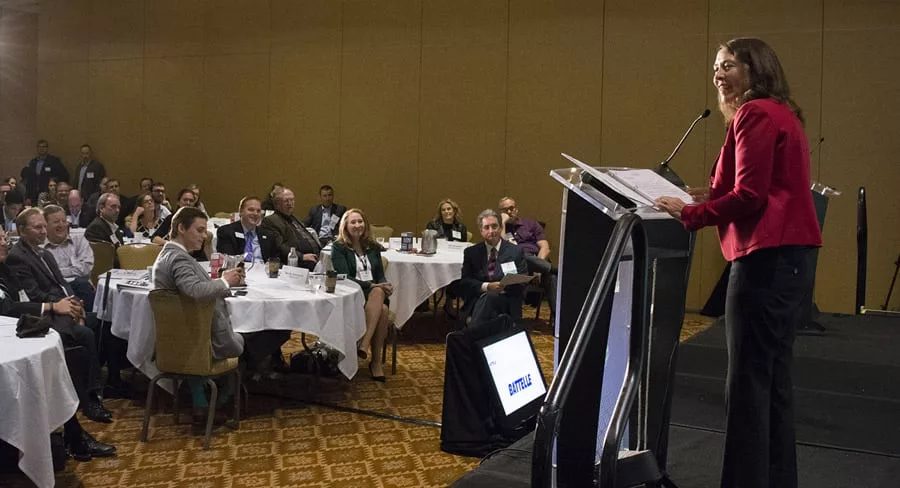
Home » Connect with congressional leaders at Aug. 14 summit
Connect with congressional leaders at Aug. 14 summit

July 17, 2018
By Kris Johnson
It isn’t just the decisions made in Olympia that impact the economy in Washington state. What happens in the “other” Washington can also affect employers, their employees and our families.
Everything from health care to trade and immigration to taxes are increasingly impacted by what happens — or doesn’t — in Washington, D.C. In short, if you’re in business in the state of Washington, you need to understand what’s happening in Washington, D.C.

We know that employers are busy, which is why the Association of Washington Business is working on ways to make it easy to follow the issues and connect with your member of Congress.
In 2014, at the urging of our members, working alongside business leaders, employees and community leaders, we began annual D.C. fly-ins to help facilitate employer engagement on federal issues with our members of Congress.
At that time, the U.S. Export-Import (Ex-Im) Bank was in jeopardy as members of Congress engaged in a political battle. Though a little-known government agency, the Ex-Im Bank is critical to Washington state’s trade-driven economy.
Hundreds of Washington’s small businesses – from music stand maker Manhasset Specialty Company in Yakima to mint oil manufacturer Norwest Ingredients in Royal City — use the bank’s loan guarantee and insurance products to safely enter overseas markets, gaining new customers abroad and growing jobs here at home.
Likewise, major changes in health care policy and purchasing at the federal level was beginning to have an impact on our state’s residents, employers and their employees. And, who can forget the 2014-15 West Coast ports slowdown? Our members of Congress worked hard to facilitate a resolution, and our members were right beside them to share anecdotes of the impact of the slowdown on jobs and calculate the real impact to Washington state’s economy — nearly $800 million in about six months.
Today, trade tensions have the potential to do long-lasting harm to the economy and ongoing immigration issues are impacting two major sectors of our state’ economy — tech and agriculture.
Washington state is an integral part of the global economy that is delicately balanced between policy decisions at the state and federal level. And, now more than ever, Washingtonians must speak to the issues that matter to them with their members of Congress.
As part of that effort, AWB held its first-ever Federal Affairs Summit as part of last year’s annual Policy Summit in Cle Elum. Both Sens. Patty Murray and Maria Cantwell joined U.S. House members in addressing standing-room-only crowds.
For some business leaders, this is the only opportunity they have had to address their federally elected officials in their home state and in one location. It’s hard for busy entrepreneurs to get time away from their business. And it’s expensive to travel to Washington, D.C.
So, this year, AWB is taking advantage of the congressional August recess and holding a day-long Federal Affairs Summit on Aug. 14 in Tacoma — once again convening Congress here at home. The event will allow employers, employees, and state and local officials to connect with Congress in one location, in one day, in their home state.
Each one of Washington’s 12 congressional delegates are invited to discuss trade, taxes, health care, immigration, the Ex-Im Bank and more with us. There will be time for questions — and we have many of them — and the policy updates will get us up-to-date on the latest issues that impact our state’s employers, families and diverse regional economies.
Just because we’re 2,500 miles from Washington, D.C., doesn’t mean we can’t share our voices and engage on critical issues before Congress that have a ripple effect across Washington state.
Kris Johnson is the president of the Association of Washington Business, the state’s chamber of commerce and designated manufacturing association.
Local News Banking & Investments
KEYWORDS july 2018





